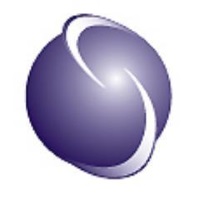
SLA Releases Updated Version of Competencies for Information Professionals
April 20, 2016
The Special Libraries Association (SLA) released a new version of its Competencies for Information Professionals document.
“The competencies document describes the skills and knowledge that special librarians need to be effective in their role of helping organizations succeed,” says 2016 SLA President Tom Rink. “There is virtually no area of work today that does not use information and data, and people who are skilled in finding, analyzing, managing, organizing, and sharing information and data can make the critical difference between organizational success and failure.”
SLA Takes Fresh Look at Skills Used for Information Work
Revised document serves as ‘common platform’ of competencies
Alexandria, Virginia, 19 April 2016—The Special Libraries Association (SLA) has reviewed and updated the competencies that its members and other information professionals use to manage the growing volumes of information, knowledge, and data that are critical to the functioning and success of modern organizations.
SLA’s Board of Directors, in a meeting on April 13, approved the revised competencies, which were last updated in 2003. The revised document was created by a task force of seven SLA members appointed in 2015 by then-SLA President Jill Strand. The task force surveyed SLA members, conducted a “knowledge cafe” at the SLA 2015 Annual Conference, and reviewed a variety of literature related to competencies in preparation for developing a draft document, which it circulated throughout the association in January for comment. The revised document incorporates some of the feedback received in response to the draft.
“The competencies document describes the skills and knowledge that special librarians need to be effective in their role of helping organizations succeed,” says 2016 SLA President Tom Rink. “There is virtually no area of work today that does not use information and data, and people who are skilled in finding, analyzing, managing, organizing, and sharing information and data can make the critical difference between organizational success and failure.”
The competencies are divided into two groups: core competencies, which are intrinsic to the information profession, and enabling competencies, which are used by professionals in other fields as well as special librarians. The core competencies, such as information and data retrieval and analysis, essentially define what information professionals do and how they work; the enabling competencies, which include effective communication, project management, and innovation, support overall professional success and development.
The core competencies are as follows:
- Information and knowledge services, including analyzing information and knowledge flows and developing information literacy skills among stakeholders;
- Information and knowledge systems and technology, which includes designing interfaces for an intuitive user experience;
- Information and knowledge resources, including establishing resource budgets and aligning the strategy for managing information resources to meet the needs of the organization;
- Information and data retrieval and analysis, including developing search strategies to discover and retrieve information and assessing the veracity or quality of such information;
- Organization of data, information, and knowledge assets, including developing custom metadata schemas and taxonomies; and
- Information ethics, which includes modeling ethical information behavior and recognizing ethical issues relative to information handling.
The competencies are useful not only to those who work in special libraries and in the broader information profession, but also educators and students in the library field. Employers, too, can benefit from the competencies by gaining a broader understanding of what librarians and information professionals can bring to their organizations and how they can contribute to its success.
To read the competencies document, click here.
About SLA
The Special Libraries Association (SLA) is a nonprofit international organization for innovative information professionals and their strategic partners. SLA serves information professionals in more than 60 countries and in a range of working environments, including business, academia and government agencies. SLA promotes and strengthens its members through learning, advocacy and networking initiatives. For more information, visit sla.org.
Add a new comment